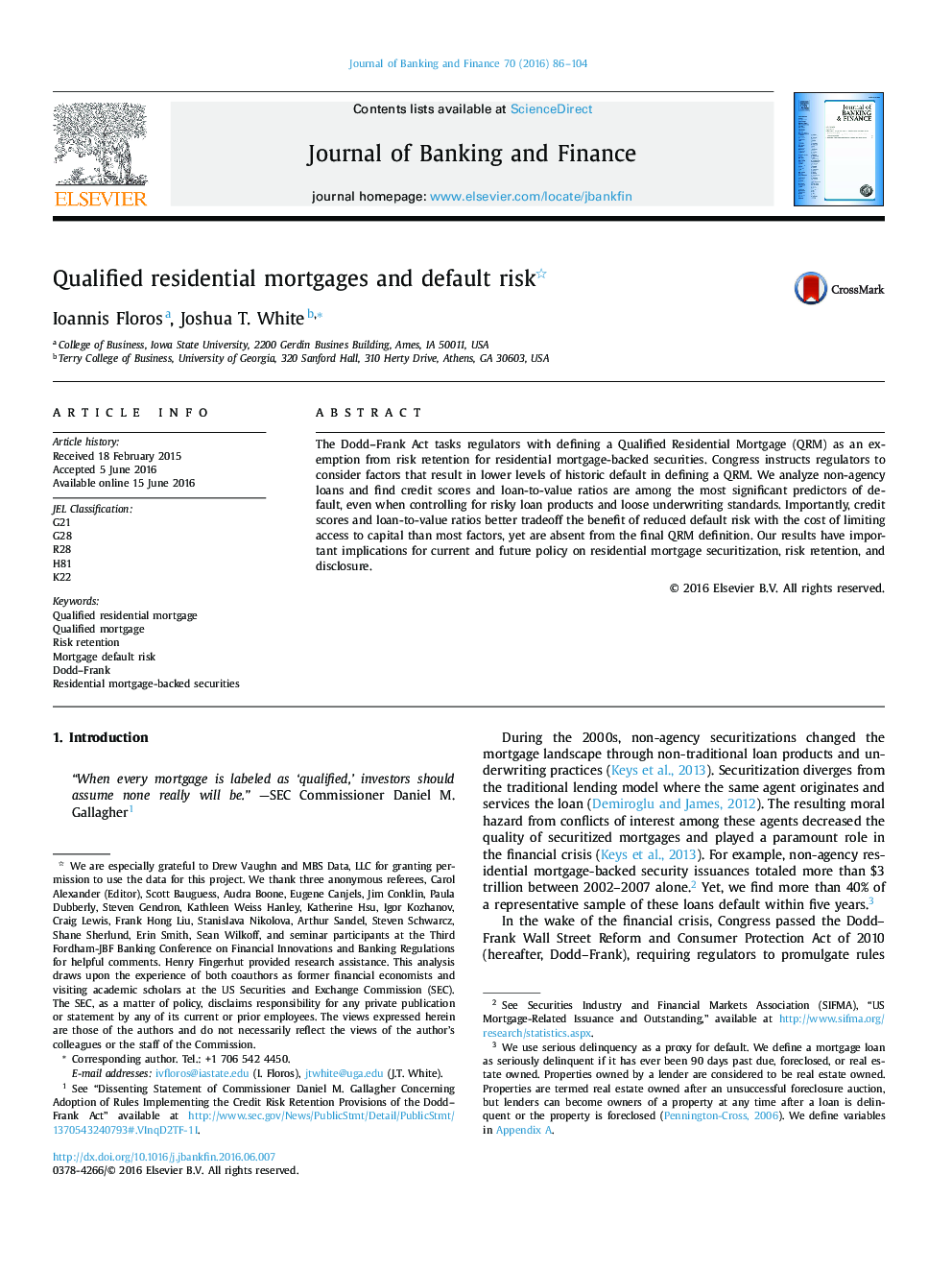| Article ID | Journal | Published Year | Pages | File Type |
|---|---|---|---|---|
| 5088290 | Journal of Banking & Finance | 2016 | 19 Pages |
Abstract
The Dodd-Frank Act tasks regulators with defining a Qualified Residential Mortgage (QRM) as an exemption from risk retention for residential mortgage-backed securities. Congress instructs regulators to consider factors that result in lower levels of historic default in defining a QRM. We analyze non-agency loans and find credit scores and loan-to-value ratios are among the most significant predictors of default, even when controlling for risky loan products and loose underwriting standards. Importantly, credit scores and loan-to-value ratios better tradeoff the benefit of reduced default risk with the cost of limiting access to capital than most factors, yet are absent from the final QRM definition. Our results have important implications for current and future policy on residential mortgage securitization, risk retention, and disclosure.
Related Topics
Social Sciences and Humanities
Economics, Econometrics and Finance
Economics and Econometrics
Authors
Ioannis Floros, Joshua T. White,
